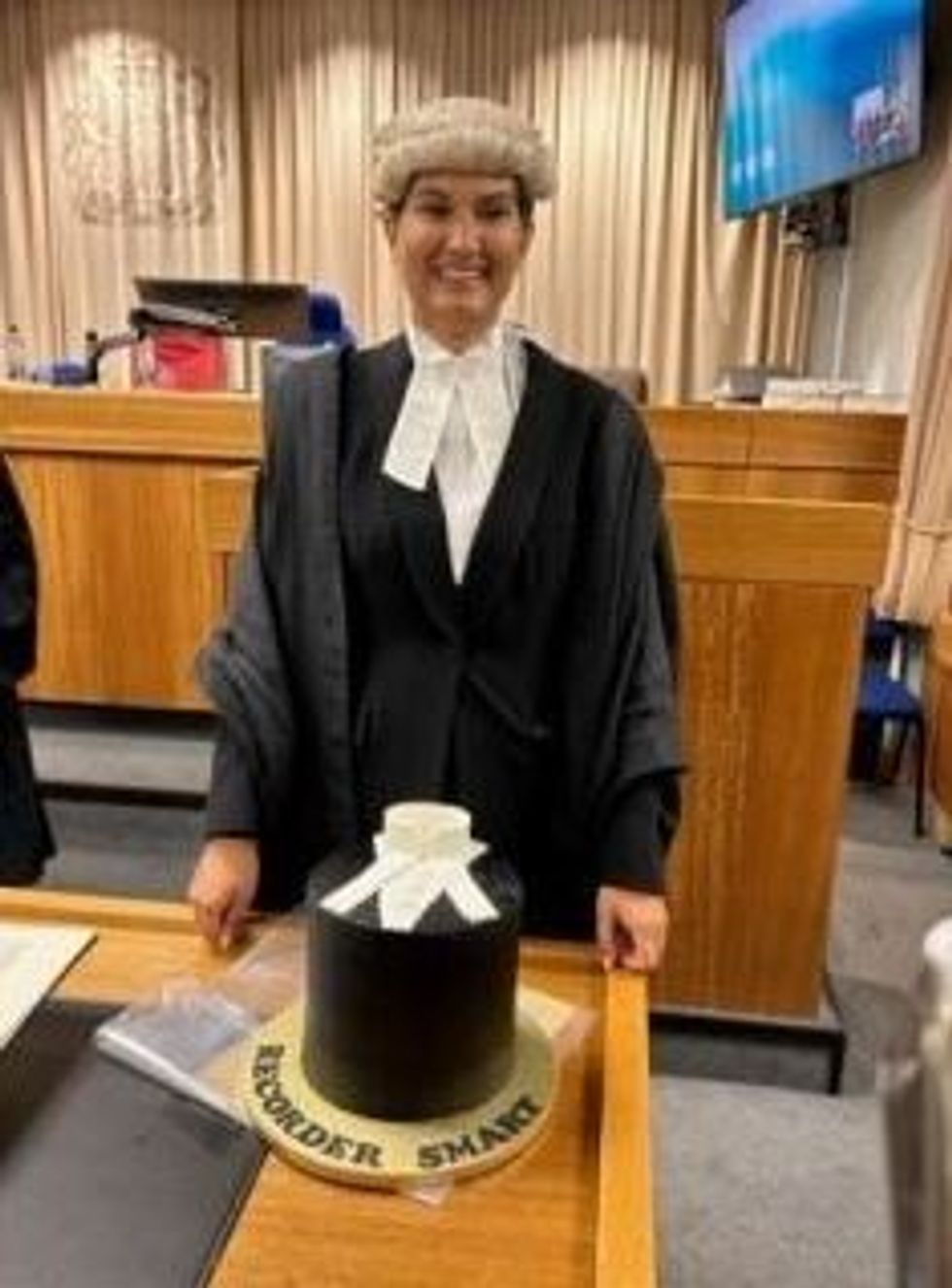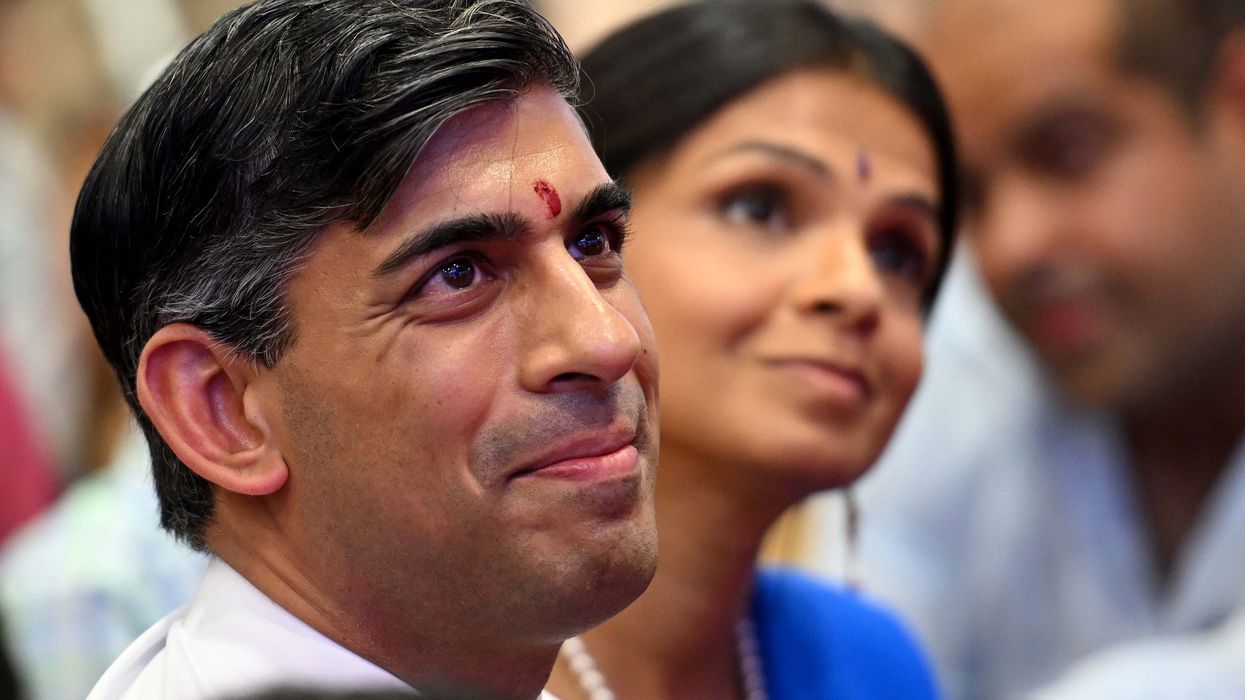AYESHA SMART, the youngest-ever ethnic minority crown court judge in the UK, hopes the story of her career – from being a pathologist in a hospital to practising law – will inspire other people of colour and women.
Smart, 35, was last month appointed as a recorder in crown courts across northeast England.
The Yorkshire-based barrister is the daughter of a Sri Lankan mother who arrived in the UK to study at Lancaster University, where she met Smart’s father, who was raised in South Africa.
“I’m proud of my achievement, as are my family. I remember my mum commenting when I got the appointment that it made her family’s move from Sri Lanka to the UK all worthwhile,” Smart told Eastern Eye.
She added, “As someone who has faced prejudice in my life and career, it’s positive to showcase that people of colour and women can be just as successful as their white or male counterparts, and youth doesn’t necessarily mean ineptitude.”
Smart initially wanted to be a missionary doctor, like many of her family members who returned to Sri Lanka to practise medicine. So she studied medical sciences at the University of Leeds and then worked at Harrogate Hospital within the pathology and microbiology department.
“During my first undergraduate degree, I took an elective module which was a little outside the norm for medical sciences. It was history of medicine – this module didn’t just involve lectures, but also included group sessions debating and discussing the practices and theories in medicine throughout various periods,” Smart recalled.
“This first sparked my interest in constructive arguments, and I excelled in this module. So when I decided to move away from the sciences, I tested the waters with an LLM in medical law and ethics at the University of Edinburgh. Everything really fell into place thereafter, when I made the switch.”
Smart said there were some bumps and barriers along the way.
“The first was because there were no lawyers in my immediate family to offer advice. They largely come from medical, engineering or mathematics backgrounds and so I had to be proactive about obtaining relevant work experience and use the facilities at university and my inn for career support to acquire pupillage.”
After completing her law degree at BPP University, Smart secured a pupillage and was called to the bar in 2014.
She joined Exchange Chambers in Leeds last month, specialising in crime, regulatory and clinical negligence.
But it wasn’t all plain sailing for Smart after she started her career as a barrister.
“I’ve experienced difficulties professionally due to my ethnicity. Despite my experience and expertise, some clients have not wanted me to represent them, due to my ethnicity. Others made assumptions about my ability and expertise due to my different cultural background,” she said.
Smart said when she changed her career to law, her “ultimate goal” was to become a judge. However, she admitted she anticipated a “challenging time in judicial applications” because of her background and her lack of connections in the field of law.
Government figures show that Asian judges currently make up 4.79 per cent of the judiciary; up from 2.53 per cent eight years ago. Women currently are around a third of the judges.
“The judiciary is an evolving profession, but has a journey to make to catch up with the progressing development at the bar (Asians constituted eight per cent of barristers, 12 per cent of solicitors and five per cent of chartered legal executives),” said Smart.
“They (judiciary) are making considerable efforts to keep up with modern times and the diverse society we now live in, although there are still some areas of un[1]conscious bias, and prejudicial views to overcome,” she added.
“There is also work to be done on supporting those who juggle work and a family and the courts’ factoring in commitments such as childcare and school runs, which often fall to women.”

Smart said her next goal is to encourage youngsters from ethnic minority backgrounds to follow in her footsteps.
“There is an assumption that to get on the judicial ladder, you have to have familial connections, attended Oxford or Cambridge, or be a member of the upper echelons of society,” she said.
“However, changes to the judicial appointment process have enabled more opportunity and equitable balance to support ordinary people, like me, to be afforded an opportunity to get into this profession.”
She pointed out there are many diversity schemes that offer minority groups opportunities in careers in law, including Spruce (Student pre-university court exposure) in Bradford which encourages students to visit courts and learn about the legal system. Smart plans to have a similar scheme at Leeds crown court where young people from diverse backgrounds can shadow her.
“I think many people believe that to be a good judge, you have to be older, generally conservative, well-to-do and white,” she said.
“When I was at school, I never considered law or the judiciary as a career path for those reasons. I didn’t see anyone like me in that field and wasn’t inspired to go down that route.
“However, now in a diverse UK, it is clear there is a need for all kinds of people to become judges to strengthen the judicial process and increase the perception of fairness.”
On advice she would give those who wish to follow in her footsteps, Smart said: “The headline really is stay focused, be determined and be brave. Don’t let others talk you down and stay true to your goals.
“The Judicial Appointment Commission runs an outreach scheme that is targeted at those from diverse backgrounds who might not ordinarily have the confidence, background, or connections to put in a judicial application.
“I utilised the mentoring scheme as well as work placement scheme which I believe drastically improved my chances of success in the Recorder competition.
“My mentor, a newly appointed circuit judge, really was a lifeline.”






 Former prime minister Rishi Sunak with his wife Akshata Murty (left), their children Anoushka and Krishna and his mother-in-law Sudha Murty (second from left) are pictured during their visit to the Taj Mahal in Agra last month
Former prime minister Rishi Sunak with his wife Akshata Murty (left), their children Anoushka and Krishna and his mother-in-law Sudha Murty (second from left) are pictured during their visit to the Taj Mahal in Agra last month












 Sara Sharif. (Photo: Surrey Police)
Sara Sharif. (Photo: Surrey Police)
 FILE PHOTO: Floral tributes are laid following a vigil for the victims of the knife attack in Southport, Britain July 30, 2024. REUTERS/Temilade Adelaja
FILE PHOTO: Floral tributes are laid following a vigil for the victims of the knife attack in Southport, Britain July 30, 2024. REUTERS/Temilade Adelaja
